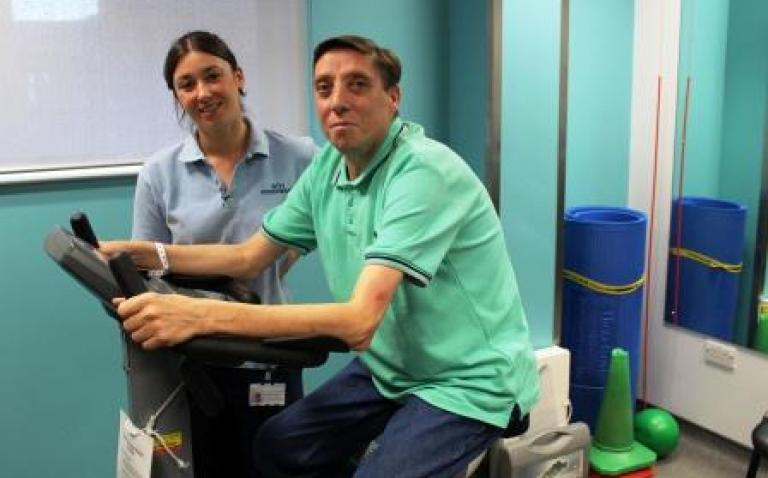A team of UK researchers, led by Sheffield Teaching Hospitals NHS Foundation Trust, have been awarded a £2 million National Institute for Health Research (NIHR) Programme Grant to develop and test new models of care, which could dramatically improve the health of patients with cystic fibrosis.
Cystic fibrosis is an inherited disease affecting 10,000 people in the UK, with patients needing to take a strict daily regime of inhaled medications and physiotherapy to prevent lung infections to which they are prone. This often involves taking inhaled medications and tablets several times a day – a treatment regime that only a third manage to adhere to.
When people with cystic fibrosis do not adhere to these treatments, it can result in unscheduled emergency care and hospital admission, which is distressing to both people with cystic fibrosis and their families and leads to lung deterioration that shortens lives. Emergency admissions also result in increased costs to the NHS.
Now a UK-wide consortium of cystic fibrosis clinicians and researchers, led by Dr Martin Wildman of Sheffield Teaching Hospitals NHS Foundation Trust and Professor Alicia O’Cathain of the University of Sheffield’s School of Health and Related Research (ScHARR), are to spend the next five years researching interventions which will help patients with cystic fibrosis understand and measure how much medication they are taking, new motivational methods and a website which will enable them to interact with physiotherapists and doctors to see at a glance what percentage of medications they’ve successfully taken.
Dr Martin Wildman, Consultant in Respiratory Medicine and Adult Cystic Fibrosis at Sheffield Teaching Hospitals NHS Foundation Trust and the University of Sheffield’s School of Health and Related Research, said: “Cystic fibrosis is a life-shortening inherited illness. Not long ago people with the disease were unlikely to make it into adulthood, but breakthroughs in treatments mean that life expectancy is increasing.
“While advances in therapy has given people with cystic fibrosis hope, keeping up with time-consuming treatment can be a major burden. Through this grant we aim to develop behaviour change interventions that can support habit formation, which will enable people with cystic fibrosis to stay fit and healthy. By providing patients with an ability to get frequent feedback on how successful they have been in taking their treatment we will empower people with cystic fibrosis to take control of their illness. The clinical team aim to become like a team coach helping patients to reach their own goals rather than dictating a treatment regime that may often seem unmanageable.”
This work will develop a toolkit that will allow other units around the UK to support people with cystic fibrosis. The new methods will be rigorously tested in 12 cystic fibrosis centres across the country, with the Northern General Hospital’s cystic fibrosis unit acting as the development centre.
The research has also been awarded an additional £200,000 prestigious NIHR Fellowship. The work will commence in March 2015 and finish December 2019.










